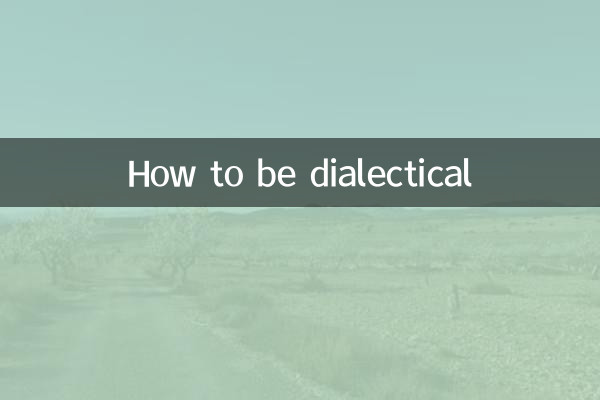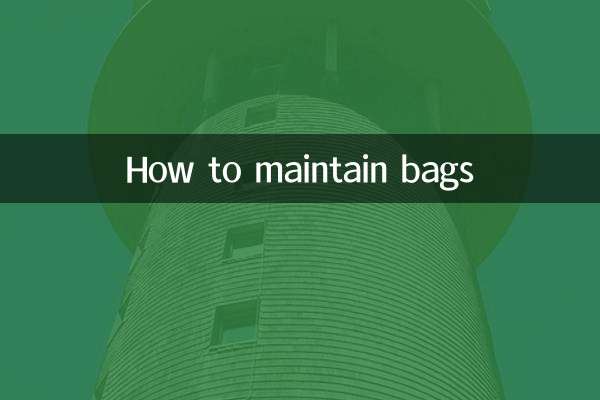How to be dialectical
In the era of information explosion, dialectical thinking has become an important tool for us to understand and analyze hot topics. This article will combine the hot topics across the Internet in the past 10 days to explore how to view these phenomena through a dialectical approach and provide structured data for reference.
1. Overview of hot topics on the Internet in the past 10 days

The following are the five most discussed topics on the Internet in the past 10 days and their related data:
| Ranking | hot topics | Number of discussions (10,000) | Main platform | keywords |
|---|---|---|---|---|
| 1 | New breakthroughs in AI technology | 1200 | Weibo, Zhihu, Twitter | artificial intelligence, ethics, employment |
| 2 | Global climate anomalies | 980 | Twitter, Reddit, WeChat | Extreme weather, environmental protection, policy |
| 3 | A celebrity scandal | 850 | Weibo, Douyin, Instagram | entertainment, privacy, ethics |
| 4 | New consumption trap | 720 | Xiaohongshu, Bilibili, Zhihu | Marketing, Consumer Rights, Legal |
| 5 | international political situation | 680 | Twitter, news client | diplomacy, economy, security |
2. Methods of dialectical analysis of hot topics
Facing these hot topics, we need to think dialectically from multiple perspectives:
1.New breakthroughs in AI technology: We should not only see the efficiency improvements brought about by technological progress, but also be wary of ethical issues and employment impacts. For example, the application of AI in the medical field can save lives, but it may also raise data privacy issues.
2.Global climate anomalies: It is necessary to balance the relationship between economic development and environmental protection. Frequent occurrences of extreme weather warn us to speed up emissions reductions, but social affordability also needs to be considered during the transformation process.
3.celebrity scandals: Entertainment news often conceals deeper social issues. The public should reflect on the boundaries of media ethics and privacy protection when consuming this type of information.
4.New consumption trap: While emerging consumption models bring convenience, they also come with routines and risks. Consumers need to improve their ability to distinguish, and regulatory authorities should also improve regulations in a timely manner.
5.international political situation: Geopolitical changes have far-reaching impacts. We must pay attention to national interests and avoid extreme nationalist sentiments.
3. Comparison of pros and cons on hot topics
The table below shows the pros and cons of major topics:
| topic | positive view | Opposite view |
|---|---|---|
| New breakthroughs in AI technology | Improve production efficiency and solve complex problems | Threats to human employment, algorithmic bias exists |
| Global climate anomalies | Promote green transformation and raise environmental awareness | Transformation costs are high and affects economic development |
| celebrity scandals | Meet public entertainment needs | Invading privacy and spreading negative values |
| New consumption trap | Innovate business models to stimulate consumption | Infringe on consumer rights and disrupt the market |
| international political situation | Safeguard national interests and enhance the right to speak | Exacerbating conflicts and affecting global stability |
4. Three steps to cultivate dialectical thinking
1.Comprehensive collection of information: Don’t limit yourself to a single source, compare voices from different positions.
2.Analyze stakeholders: There are different interest groups behind each topic, and understanding their positions helps to see the essence.
3.Find a balance: Extreme views often have limitations, and the best solution must be found between opposites.
5. Conclusion
In this era of information overload, dialectical thinking is an essential ability for us to resist bias and make rational judgments. By structurally analyzing the pros and cons of hot topics, we can grasp the essence of the issue more comprehensively and avoid being misled by one-sided information. We hope that the data and methods provided in this article can help readers develop the habit of dialectical thinking.

check the details

check the details